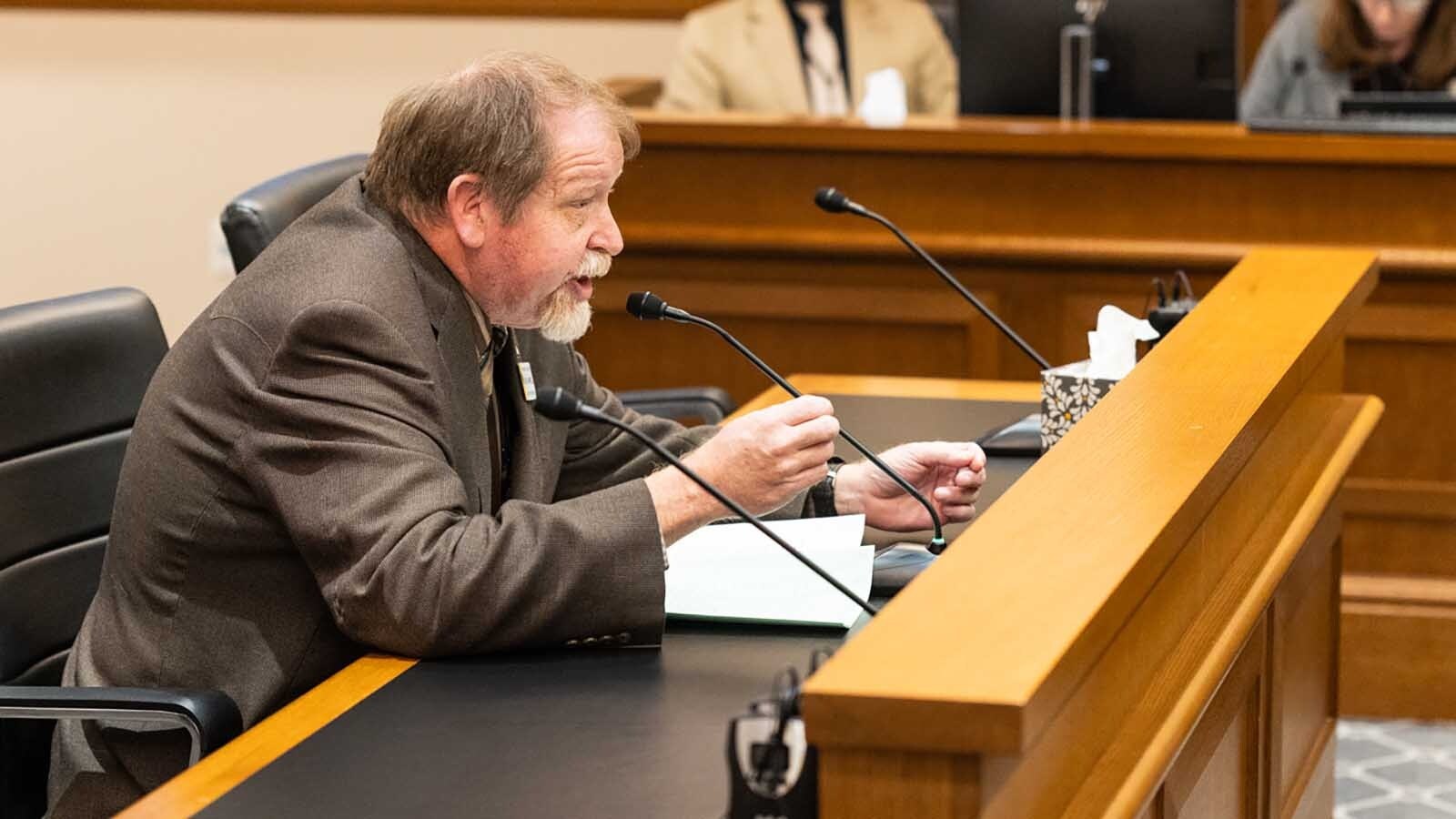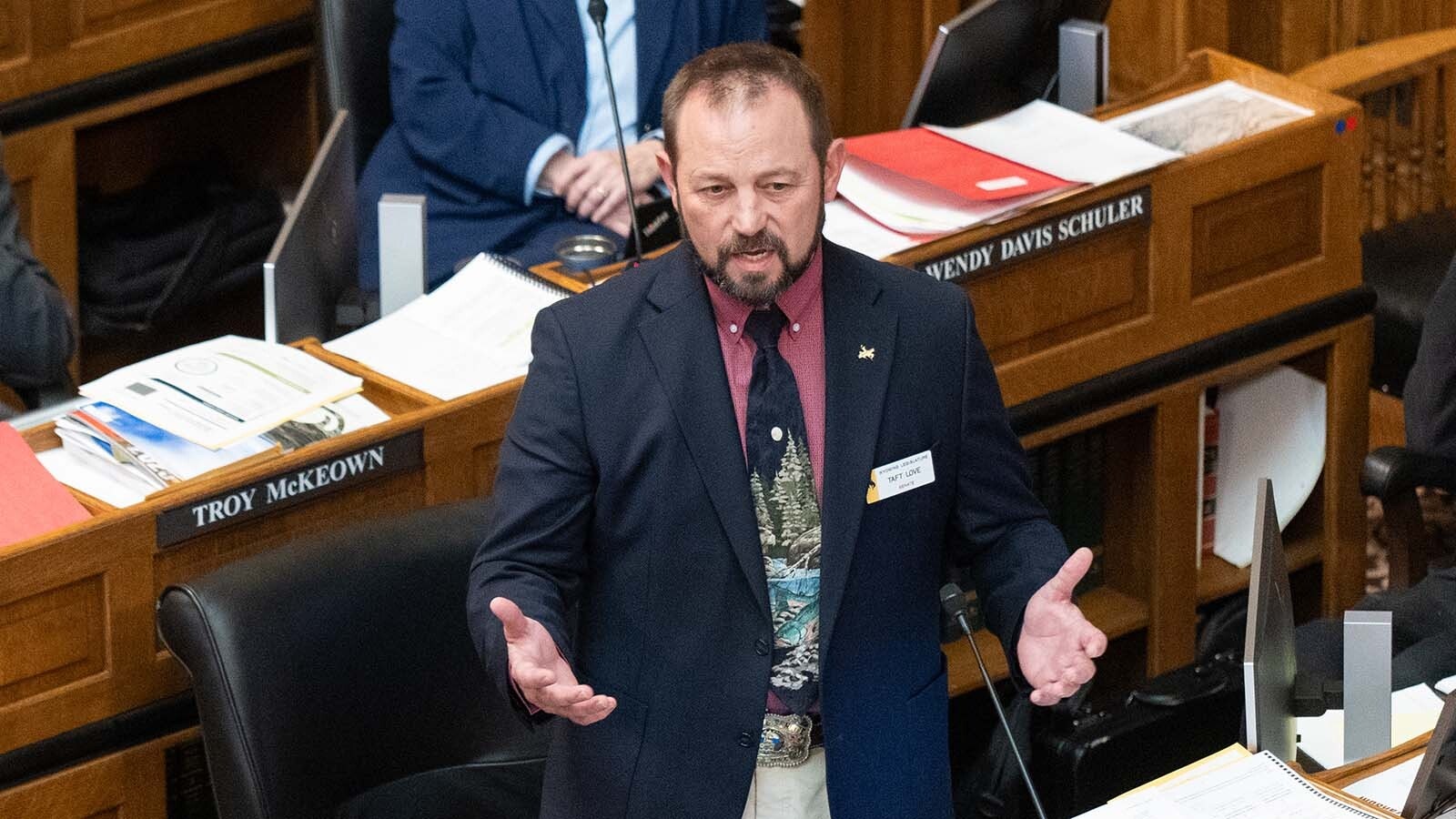The utilities providing electricity to Wyoming residents responded with cautious optimism to Wednesday’s news that the Environmental Protection Agency (EPA) plans to roll back Biden-era emissions rules for coal-fired power plants.
The move comes after clashes in federal court between the state of Wyoming and the EPA under Biden. The reversal of the rules is hailed by Wyoming leaders as good news for utility ratepayers and the state’s coal industry.
Former Wyoming legislator and current EPA Region 8 Administrator Cyrus Western applauded the recent announcement from the EPA as a positive development for Wyoming's economy and energy consumers. At the same time, groups like the Clean Air Task Force sounded the alarm about how the rules protect public health.
Meanwhile, the state of Wyoming’s lawsuit against the EPA appears to be on hold while the Trump administration continues to repeal and ratchet back environmental regulations.
“This deregulatory action has a huge positive impact on Wyoming,” Western told Cowboy State Daily on Thursday.
He said the reversal of stringent emissions regulations will allow utilities to buy more Wyoming coal, ultimately leading to lower power bills for residents.
But this rule change won’t be like flipping a light switch, said Shawn Taylor, executive director of the Wyoming Rural Electric Association.
"I don't think we can say with 100% certainty this will bring bills down because there's a lot more that goes into it,” said Taylor. "This opens it up for more generation. And with more generation, you can serve more load, which hopefully will at least keep rates stable. I think it's a good first step."
Taylor also said the strict regulations didn’t help Wyoming as it competes in the national marketplace for power.
"If Wyoming is going to play in this arena of extreme, large load increases that everybody's talking about across the country, we're going to have to build generation,” said Taylor. “The (EPA) order kind of helps that.”

Wait And See
Basin Electric and Montana-Dakota Utilities told Cowboy State Daily they are still assessing the situation following the EPA announcement Wednesday.
Mark Hanson, spokesman for Montana-Dakota Utilities, said, “We’re reviewing the proposed rules and may submit comments during the 45-day comment period.”
Rocky Mountain Power’s parent company PacifiCorp provided a statement to Cowboy State Daily, touching on challenges utilities face meeting a growing demand for electricity.
“As PacifiCorp works to meet the growing demands of our customers for energy, regulatory certainty and flexibility are needed to support long-term investment decisions that result in reliable and affordable energy for our customers,” stated PacifiCorp. “We will continue to monitor the recently announced actions and work to achieve balanced outcomes for all stakeholders.”
In March, Rocky Mountain Power reached an agreement with the Wyoming Office of Consumer Advocates and Wyoming Industrial Energy Customers to an overall rate increase of 10.2%. It amounted to an overall cost increase of $85.5 million for Wyoming.
That would in turn make the hike for an average residential ratepayer’s monthly bill to $14, according to Rocky Mountain Power.
In 2024, PacifiCorp (operating as Pacific Power) requested a significant rate increase for Oregon customers, initially asking for a 17.9% overall hike, with a later proposal of 11.9%. For residential customers, the request was reduced to 14.9% by August 2024.
After regulatory review, the Oregon Public Utility Commission approved an 8.5% overall increase.
The Details
In April 2024, the Biden administration required existing coal-burning power plants, and future plants burning natural gas, to begin capturing their carbon dioxide in the 2030s.
U.S. Sen. John Barrasso opposed this and other Biden-era requirements, and on Wednesday, Wyoming’s senior senator celebrated the proposed EPA changes.
“America is an energy superpower. Under Republican leadership, we are acting like it,” said Barrasso. “The Biden administration’s outrageous climate rules would have shut down power plants and increased energy costs for families across the country.
“Repealing these rules will take the handcuffs off of Wyoming’s energy workers so they can unleash affordable, reliable American energy.”
From his position in the EPA’s Denver office, Western echoed this message.
“The announcement yesterday is huge because it rolled back a lot of those extremely low emission requirements that these utilities were being subjected to,” he said. “It is ensuring that the electrical consumers that the utility bills of your average American are not going to continue to increase what they have been over the last 10, 15 years.”
The EPA's proposal reduces regulations on hazardous air pollutants emitted by coal- and oil-fired electric utility steam generating units and are expected to revert back to 2012 standards.
The agency estimates that this rollback could save the power sector approximately $19 billion in regulatory costs over the next two decades — around $1.2 billion per year.
Watchdog Pushback
Environmental advocates and some legal experts caution that the rollback of EPA regulations could have detrimental effects on public health and the environment.
Frank Sturges, an attorney with the Clean Air Task Force, also voiced skepticism about the claims that repealing these regulations will lead to lower power bills.
“The accompanying regulatory analysis isn't showing a big change to retail electricity prices,” Sturges told Cowboy State Daily on Thursday.
Sturges emphasized that the existing regulations were designed to protect public health by reducing harmful emissions, and their repeal could reverse the progress made in improving air quality.
Sturges elaborated on the potential consequences of the proposed changes, stating, “If EPA is successful in its repeal of these regulations, the American people will suffer the consequences.”
Western, with the EPA, urged Wyoming residents following this issue to stay engaged.
“It’s the first step in a really important process,” said the former state legislator from Sheridan. “The fact that the EPA administrator has initiated this rollback is a really significant step. It gives the regulatory certainty that the industry has been asking for years now.
“This is the first big step. Continue to watch as the rulemaking process rolls out and evolves along the way.”
David Madison can be reached at david@cowboystatedaily.com.





